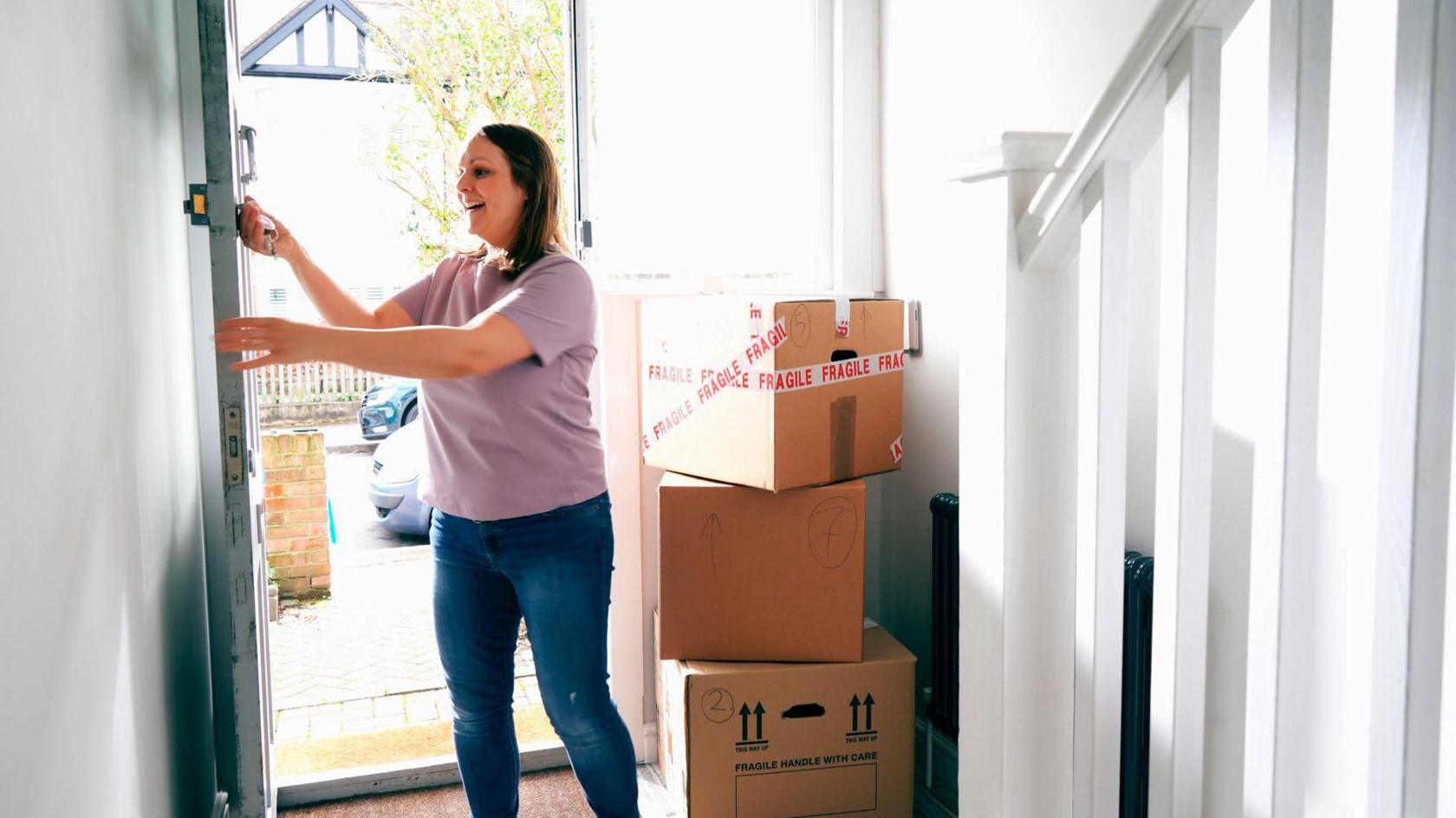Council to grow housing stock to tackle crisis

Westmorland and Furness Council has approved a new strategy to tackle its housing crisis
- Published
A council has pledged to increase the number of houses it owns so it can provide more people with affordable homes.
Westmorland and Furness Council in Cumbria has approved a new housing strategy which aims to tackle homelessness and address a rural housing crisis.
The council, which currently owns about 2,600 homes, plans to increase its stock, upgrade existing "poor quality housing" and improve accessibility for disabled residents.
Standards in the private rented sector will also be tackled through the use of legal powers.
This will include developing selective licensing schemes which are used by local authorities to regulate landlords in areas of low housing demand or those with high levels of anti-social behaviour.
New council homes will also be designed to meet net-zero carbon goals, while existing homes will be retrofitted for improved energy efficiency.
Judith Derbyshire, cabinet member for housing and community safety, said: "We have already taken important steps by investing in several projects to improve housing conditions and access, but this strategy will help build on that progress and drive even greater change."
Homelessness is also a growing area of concern, with the number of households living in temporary accommodation jumping from 31 to 60 between 2021 and 2023.
Because of this, the council intends to increase its number of temporary accommodation units.
The new housing strategy for 2025-30 was agreed at a meeting on Tuesday.
Follow BBC Cumbria on X, external, Facebook, external, Nextdoor and Instagram, external. Send your story ideas to northeastandcumbria@bbc.co.uk.